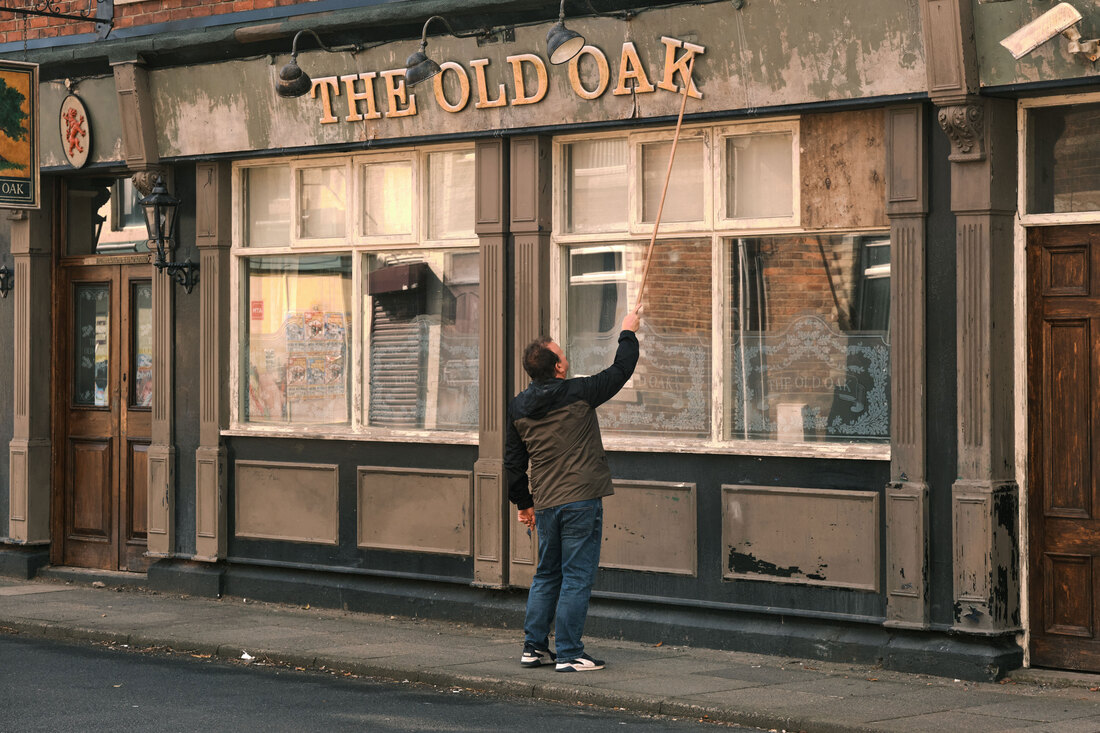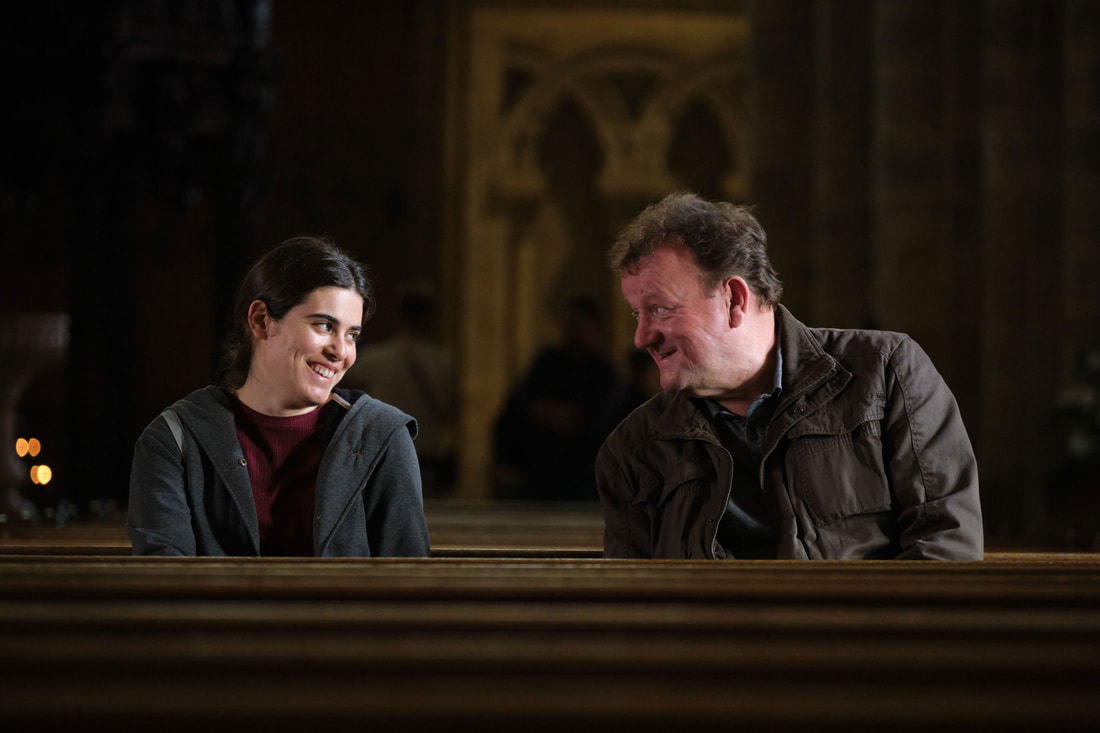|
Review by Sean Boelman
British filmmaker Ken Loach is perhaps one of the most well-known social realism filmmakers of today and all time, commenting on real issues with hard-hitting stories. Thus, it comes as a bit of a surprise that The Old Oak, Loach’s last film before he is set to retire, feels so quaint. Although it deals with some weighty themes, this drama fails to leave much of a lasting impression.
The Old Oak tells the story of the owner and patrons of a bar in a small village in England as the arrival of a group of Syrian refugees rocks their tight-knit community. This is hardly the most precarious topic Loach has bitten off in the past, but Paul Laverty’s script fails to truly differentiate its commentary from that of the many films discussing the refugee crisis in the past. One of The Old Oak's most significant flaws is its need to tell this story from the white perspective. Although Laverty clearly means well with his message, encouraging people to treat one another with empathy, it verges on pandering. At a certain point, one also has to wonder who this movie is serving. Those who need to hear the message most aren’t going to seek a movie like this out anyway, and the audience it will attract may feel condescended to. The film also struggles to reconcile Loach’s signature intimacy with the broader strokes he is painting with here. The way the story is structured, it feels like there is about to be an explosive climax, and there isn’t. In typical Loach style, The Old Oak eschews flashy melodrama in favor of a more low-key, realistic exploration of the mundanity of hate. Loach is clearly more interested in exploring the microaggressions of racist society than he is in the more outwardly dangerous expressions of hate.
This conversation is certainly an interesting one and offers a somewhat fresh perspective on a topic that many filmmakers have commented on in the past, but coming from one of the world’s greatest social filmmakers, it all feels a bit too soft. Although the movie’s suggestion of “get with the times or get out of the way” is certainly admirable, it’s not nearly condemning enough of the bigotry we see on screen.
And while the characters they play are sometimes frustratingly archetypal, the cast does a respectable job. Dave Turner, whose only past acting experience was minor roles in Loach’s last two films, brings a lovable charm to his role, and Ebla Mari — a complete newcomer — exudes an astounding amount of confidence. However, what is missing from these characters is a believable interplay. Laverty is seemingly trying to set up an “odd couple” dynamic between the duo, an unlikely alliance that forms between them because they see the innate goodness within one another. Yet — and it’s hard to tell if the responsibility lies on the writer or the performers — it never feels like these two people would be friends in real life. This spoils the feeling of realism that Loach painstakingly tries to create. The Old Oak is hardly a bad movie, but seeing one of the world’s greatest filmmakers go out on a note that’s so familiar, comfortable, and safe is disappointing. Perhaps the most damning thing that can be said about Ken Loach’s swan song is that it’s pretty forgettable, which should absolutely not be the case. The Old Oak opens in theaters on April 5. Rating: 3.5/5
0 Comments
Leave a Reply. |
Archives
April 2024
Authors
All
|
|
|
disappointment media
Dedicated to unique and diverse perspectives on cinema! |


